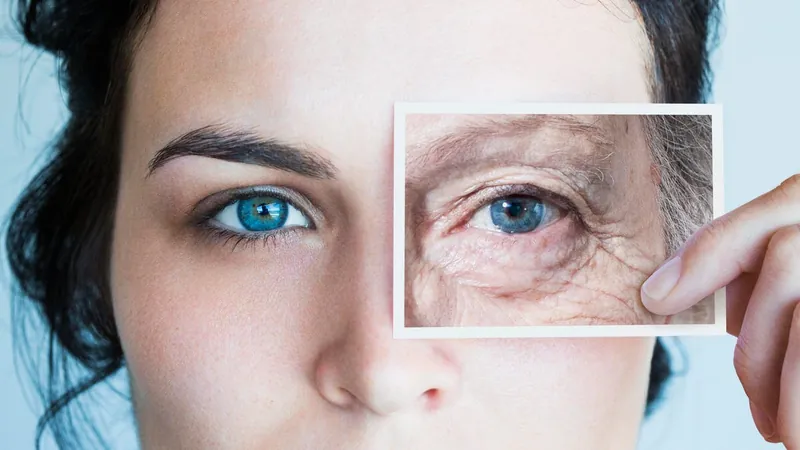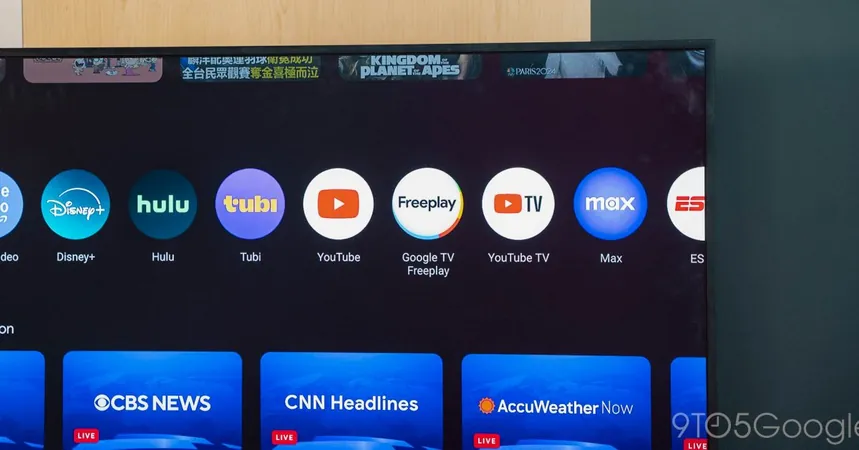
4 Expert Tips You Can’t Ignore for Protecting Your Eye Health as You Age!
2024-12-24
Author: Noah
4 Expert Tips You Can’t Ignore for Protecting Your Eye Health as You Age!
As we age, the risk of developing eye-related conditions increases, but the good news is that you can take proactive steps to safeguard your vision while enjoying comprehensive health benefits. Here are four expert tips that could make a significant difference in maintaining your eye health over the years—and don’t overlook the importance of regular check-ups with your eye doctor!
1. Understand Your Risk for Eye Diseases
Knowledge is power when it comes to your eye health! Familiarize yourself with the factors that can affect your vision, and learn to spot symptoms early on. For example, if your job involves staring at a computer screen for long periods, you might experience eye strain or temporary blurry vision. Combat this by following the 20-20-20 rule: every 20 minutes, take a 20-second break to look at something 20 feet away. Consider investing in blue-light-blocking glasses, which can help reduce digital eye strain.
Furthermore, remember to consider your family history; many eye diseases, over 350 of them, have genetic components. Understanding your risk factors can lead you to early intervention and effective management as symptoms arise.
2. Commit to Regular Eye Exams
While needing to schedule eye exams might not be exciting, they are crucial for preserving your vision! The American Academy of Ophthalmology suggests that individuals over 65 should have eye exams at least every one to two years. These check-ups can detect conditions like cataracts, diabetic retinopathy, glaucoma, and macular degeneration before they escalate into severe issues. Remember, many eye problems do not present noticeable symptoms until significant damage has occurred.
3. Protect Your Eyes with Proper Eyewear
Never underestimate the sun’s harmful UV rays! Prolonged exposure can lead to cataracts and various eye disorders. Protect yourself by choosing sunglasses that block 99% or more of UVA and UVB rays, along with wearing a wide-brimmed hat.
If you need prescription glasses or contact lenses, regular updates to your eyewear are essential. Your vision can change over time, meaning that the prescription that worked last year may no longer be sufficient. Don't hesitate to consult your optometrist about your eyewear needs!
4. Prioritize Overall Health for Optimal Eye Function
It’s not just about what you put in your eyes; it’s about what you put into your body! Nourish your vision with a diet rich in eye-healthy foods like almonds, broccoli, carrots, eggs, kiwi, leafy greens, salmon, and sunflower seeds. These foods provide essential nutrients like vitamins A, C, E, and omega-3 fatty acids, which are vital for eye health.
Moreover, maintaining a balanced diet can help control blood sugar levels and Body Mass Index (BMI), effectively lowering your risk for diabetes—a major cause of preventable blindness according to the CDC.
Taking charge of your eye health isn’t just about seeing better now; it’s about preserving your quality of life in the future. Stay informed, get regular exams, protect your eyes, and nourish your body. Your future self will thank you!









 Brasil (PT)
Brasil (PT)
 Canada (EN)
Canada (EN)
 Chile (ES)
Chile (ES)
 España (ES)
España (ES)
 France (FR)
France (FR)
 Hong Kong (EN)
Hong Kong (EN)
 Italia (IT)
Italia (IT)
 日本 (JA)
日本 (JA)
 Magyarország (HU)
Magyarország (HU)
 Norge (NO)
Norge (NO)
 Polska (PL)
Polska (PL)
 Schweiz (DE)
Schweiz (DE)
 Singapore (EN)
Singapore (EN)
 Sverige (SV)
Sverige (SV)
 Suomi (FI)
Suomi (FI)
 Türkiye (TR)
Türkiye (TR)